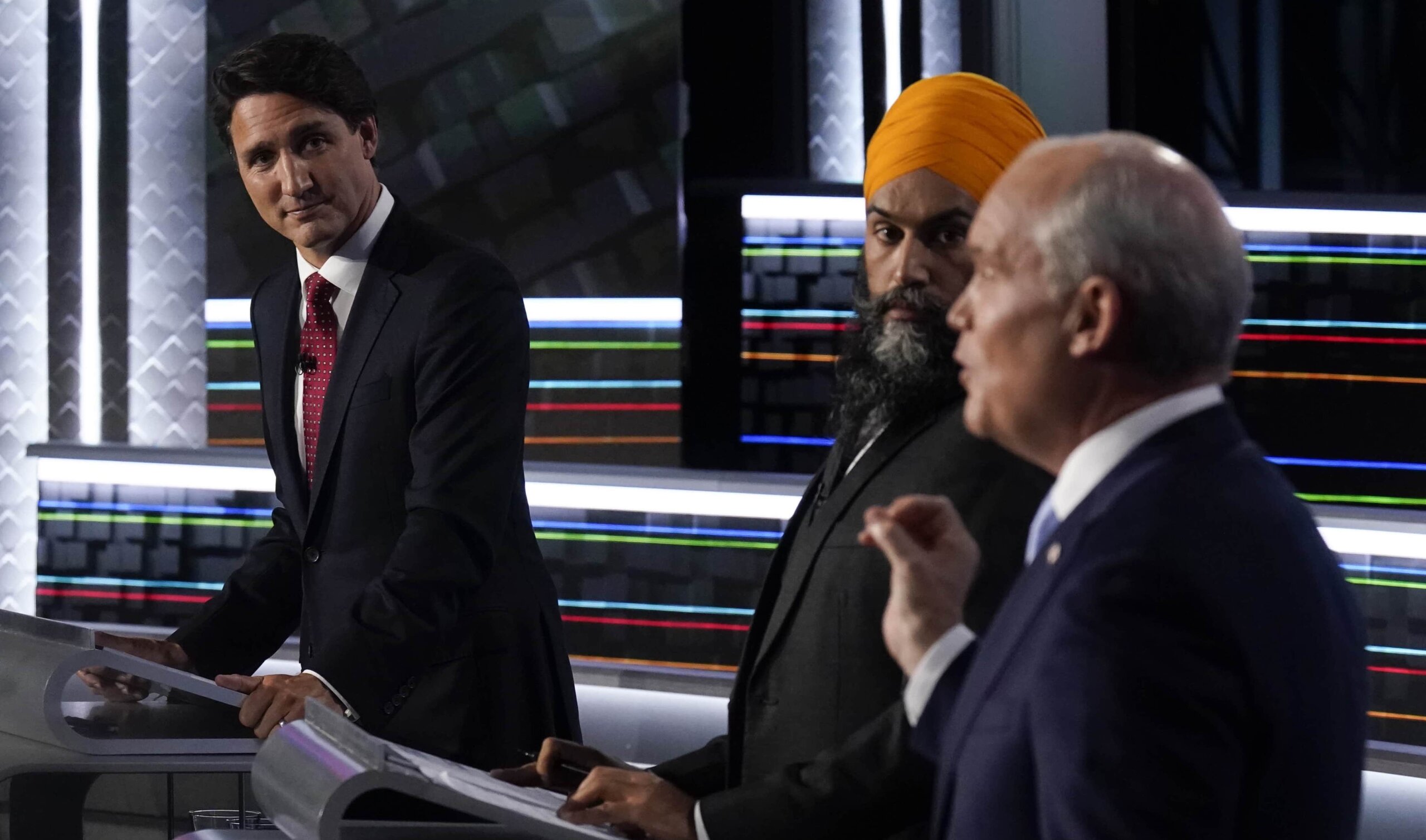Thursday night’s English debate between the five main federal party leaders was another lost opportunity for meaningful engagement on issues of actual importance to Canadians. We got a bunch of rapid-fire questions and prepared talking points instead of genuine exchanges between leaders.
Here are five takeaways from the debate:
1. Diversity of debate participants
This is the most diverse group of leadership candidates so far in Canadian history. While three cisgender, heterosexual white men lead the three parties that had the most seats in the House of Commons before the election—Liberal Leader Justin Trudeau, Conservative Leader Erin O’Toole and Bloc Québécois Leader Yves-François Blanchet—the debate was rounded by NDP Leader Jagmeet Singh, who is Sikh of South Asian descent, and, for the first time, a Black Jewish woman in Green Party Leader Annamie Paul. It was also moderated by a woman of colour, Angus Reid Institute president Shachi Kurl, and saw questions from APTN journalist Melissa Ridgen, a Red River Métis.
2. The debate format undercut substantive exchanges
The format was a tire fire. The ultimate in design-by-committee, where each of the participating networks needed to get their own talent on the air, and look tough doing it. The result: leaders debating with journalists more than they did with one another. The need to pack as many topics and questions as possible into two hours meant little time for substantive answers or substantive exchanges; when leaders made accusations about one another, there was rarely opportunity for the other to respond, or if a falsehood was thrown out (such as the Conservative insistence that the Liberals will tax home equity—which is not true), there was no chance to correct the record. Anytime a leader was on the ropes, the debate would move on from the topic at hand. There were almost no edifying exchanges the whole evening.
3. The missing queers
There was almost no queer or trans content. At the very top, Kurl asked O’Toole about whether he leads his caucus or his caucus leads him, given that the majority of them voted against Bill C-6, which would outlaw conversion therapy in Canada. O’Toole wouldn’t explain himself, and insisted that since he has been Leader of the Opposition, he’s been reaching out to all Canadians, regardless of sexual orientation. When the final “ordinary Canadian” questioner asked about pandemic recovery that included people of all races and sexual orientations, nobody made any particular mention of that in their talking point responses.
4. It ain’t easy being Green
Sorry, all you scented candle-makers over on Etsy—Annamie Paul says that you don’t exist anymore, and that it’s only about LED lights now. No, seriously.
5. Spinning systemic racism
Systemic racism was raised a couple of times, mostly as it related to Blanchet’s previous comments disavowing that systemic racism exists in Quebec. When Blanchet said that he did acknowledge it, the admission served as a means to attack Quebec as a racist or xenophobic society. This also led to an exchange between Paul and Blanchet where Paul declared: “I’m not insulting you, I’m inviting you to educate yourself.” After the debate Blanchet complained to the press that he was called a racist and a xenophobe, which no one actually did. But his claim serves a media narrative in the province, as Blanchet has been trying to make the province’s Bill 21, which bans public sector employees from wearing religious symbols, a campaign wedge-issue in Quebec.


 Why you can trust Xtra
Why you can trust Xtra


